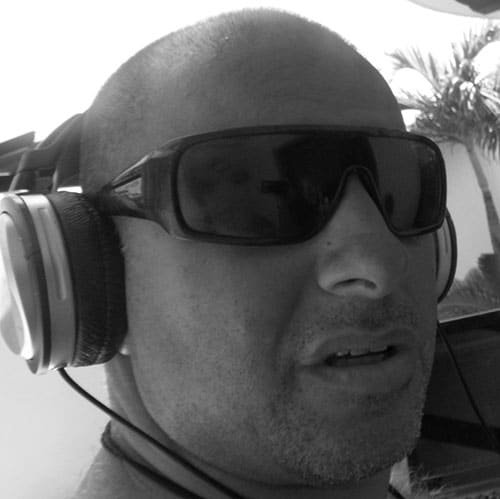 Call for Greater Transparency and Accountability in U.S. Foreign Military aid and Programs
Call for Greater Transparency and Accountability in U.S. Foreign Military aid and Programs
Rachel Corrie Foundation Joins First-Ever U.S. Universal Periodic Review

(Olympia, Washington) – The UN Human Rights Council in Geneva yesterday released its draft report on the first Universal Periodic Review (UPR) of the U.S. human rights record. The report called for greater transparency and accountability in U.S. foreign military aid and programs. On Thursday, November 4, Gina Patnaik spoke at UN headquarters in Geneva, representing the Rachel Corrie Foundation in a side panel to the U.S. review, and called upon the U.S. Government to enforce two existing mechanisms for monitoring human rights abuses – the “Leahy Amendment,” and the Country Reports on Human Rights Practices.
Last Friday, a high-level delegation of the U.S. government presented the U.S. UPR report and answered questions from more than 50 nations about the U.S. human rights record. The U.S. delegation was led by Esther Brimmer, Assistant Secretary of State for International Organization Affairs; Harold Koh, Legal Adviser for the U.S. Department of State; and Michael Posner, Assistant Secretary of State for Democracy, Human Rights, and Labor. The delegation noted “President Obama’s and Secretary Clinton’s deep commitment to multilateral engagement, human rights, and the rule of law.” The U.S. delegation stated, “By admitting the possibility of imperfection, new opportunities to improve are revealed…”
The Universal Periodic Review was established by the UN General Assembly in 2006 to review human rights records of all 192 UN member states. Last April, the Rachel Corrie Foundation provided a submission for the review of the U.S. that focused on the following:
- Lack of U.S. investigation of alleged human rights abuses committed by recipients of U.S. military aid;
- Inconsistent application of U.S. laws that govern reporting of alleged human rights abuses by foreign militaries; and
- Funding of exports and training for foreign militaries when credible evidence exists that these militaries engage in human rights violations.
The draft U.S. UPR report includes a recommendation from Norway “that the model legal framework expressed by the Leahy laws be applied with respect to all countries receiving the US’s security assistance, and that the human rights records of all units receiving such assistance be documented, evaluated, made available and followed up upon in cases of abuse.”
The Leahy Amendment is part of U.S. foreign assistance legislation and states that the U.S. must review all credible evidence of gross human rights violations committed by foreign militaries. It requires the U.S. Government to withhold U.S. funding for foreign military units when credible evidence of gross human rights violations exists and until perpetrators are held accountable.
In Geneva, Ms. Patnaik explained that there are systemic flaws in U.S. implementation of both the “Leahy Amendment,” and the Department of State’s annual Country Reports on Human Rights Practices that prevent them from effectively identifying and remedying gross human rights violations. Patnaik stated that multiple sources have provided credible evidence of a persistent pattern of human rights violations committed by the Israeli military, including the killing and injury of international human rights monitors and Palestinian civilians, and the demolition of civilian homes. However, to date, the U.S. Department of State has not conducted an investigation under the Leahy Amendment into any Israeli military violations of human rights law.
Ms. Patnaik asserted that inaccuracies and omissions in the U.S. Department of State’s annual Country Reports on Human Rights Practices compound gaps in U.S. monitoring of human rights practices. Using the Country Report’s account of Rachel Corrie’s killing as an index for larger concerns, Patnaik noted that the way the report is constructed shapes and limits the narrative available to the Department of State itself and to the U.S. Government at large, and undermines its own ability to identify and assess patterns of gross human rights violations as required under U.S. law.
Ms. Patnaik, a cousin of Rachel Corrie and Ph.D. candidate at the University of California – Berkeley, spoke about the Corrie family’s ongoing efforts to seek accountability in the case of Rachel Corrie. The side panel discussed the role of the U.S. Government in oversight of corporations (such as Caterpillar, Inc.) that are complicit in human rights violations. It was convened by the International Federation of Human Rights, the Center for Constitutional Rights, and the Western Shoshone Defense Project.

Katherine Gallagher, Senior Staff Attorney at the Center for Constitutional Rights (CCR), spoke about the U.S. justice system’s failure to hold corporations accountable for complicity in human rights violations. CCR previously represented the Corries and four Palestinian families whose members were killed or injured in Israeli military operations using Caterpillar D9 bulldozers. In 2005, they filed a lawsuit against Caterpillar, Inc. charging that the company continued to sell its machines and services long after being on notice that these are used to commit human rights violations in the Occupied Territories.
In a Ninth Circuit Court of Appeals decision to dismiss Corrie v. Caterpillar, the Court stated that it was unwilling to infringe upon the powers of the legislative and executive branches of the U.S. Government, which appropriate funds for the Israeli purchase of Caterpillar D9 bulldozers through the U.S. Foreign Military Financing. Gallagher detailed ways that failure to monitor corporate involvement in human rights violations continues to undermine the U.S. commitment to international human rights law.
The United States Government will return to the UN in March to discuss its efforts to address the 228 recommendations made during the UPR. The Rachel Corrie Foundation applauds U.S. participation in the UPR and encourages the U.S. Government to fully comply with current laws governing foreign military assistance and the Congressional mandates for accurate and complete reporting of human rights violations in the annual Country Report on Human Rights Practices.
- The Rachel Corrie Foundation’s submission to the UPR process
- The Center for Constitutional Rights’ joint submission to the UPR process
- Draft report on Universal Periodic Review of the U.S.:

Johnny Punish founded VT in 2004. After 20 years at the helm, he “retired” from the daily operations in late 2023 passing the ball over to the new owner of VT, Chief Justin Time. He now writes for VT as “Writer Emeritus”. He is also a global citizen eco-activist, visionary, musician, artist, entertainer, businessman, investor, life coach, podcast host, and syndicated columnist.
Punish is an ethnically cleansed Palestinian-American whose maternal family was evicted from their home in Haifa, Palestine in 1948 by Irgun; a Euro-Zionist Settler Terrorist Group. The family became part of the over 1,000,000 Palestinians who are Al-Nakba refugees (The Catastrophe). The family fled to Beirut Lebanon for 13 years eventually emigrating to the USA in 1961 via a Brasilian passport obtained by his Palestinian Brasilian-born grandmother (In the early 1900s, the family was sent to Sao Paolo Brasil as guest workers in the mining industry. Punish’s father is Italian-American from New York City. Punish’s paternal great-grandparents emigrated to the USA from Naples Italy and Marineo in Sicily in the 1890s. Punish was born in the Bronx, New York in 1963.
Punish was educated at the University of Nevada Las Vegas (1980-81) and California State University Fullerton (1981-1984) with studies in accounting and business. Before the “internets” had been invented, he owned and ran (5) national newspapers in the United States of America from 1987-1998. From 2004 to 2023, he owned and managed VT Foreign Policy retiring at the end of 2023.
Punish is also a recording artist. He has over 100 original songs written. He records and produces music. A member of ASCAP, Punish has several songs placed in feature films. His music is promoted worldwide and played on all digital networks and net radio.
He is also the founder and owner of Global Thinkers, a freedom media that helps free thinkers create real wealth.
Resources: Facebook – YouTube – Apple Music – SoundCloud – Spotify – X (Twitter)
Read Johnny’s Full Bio at JohnnyPunish.com >>>
ATTENTION READERS
We See The World From All Sides and Want YOU To Be Fully InformedIn fact, intentional disinformation is a disgraceful scourge in media today. So to assuage any possible errant incorrect information posted herein, we strongly encourage you to seek corroboration from other non-VT sources before forming an educated opinion.
About VT - Policies & Disclosures - Comment Policy




